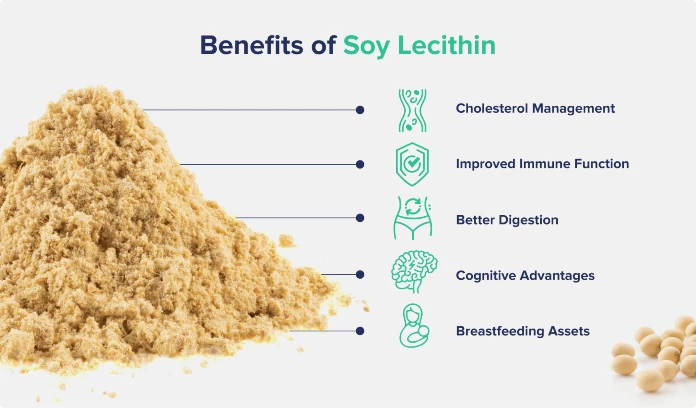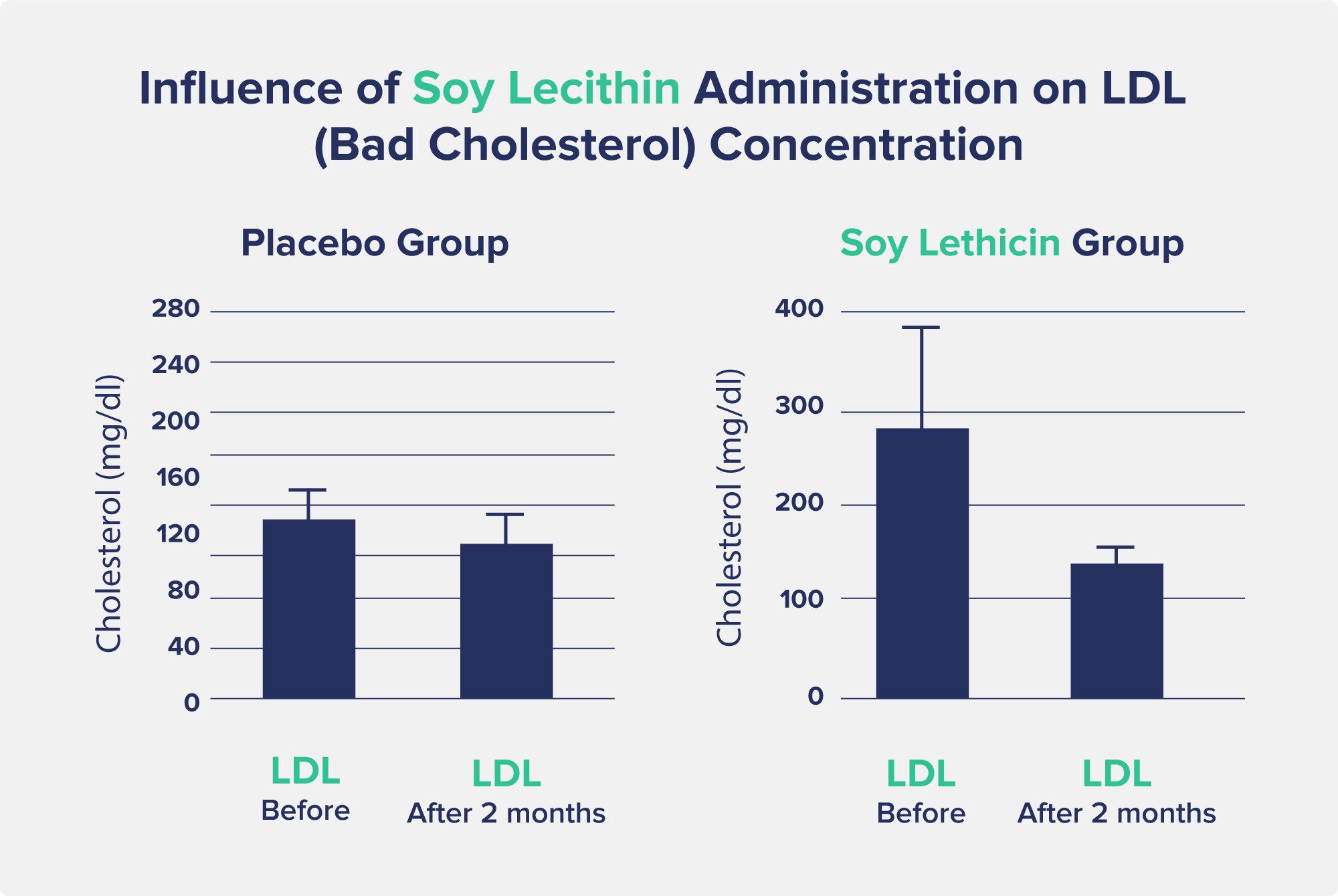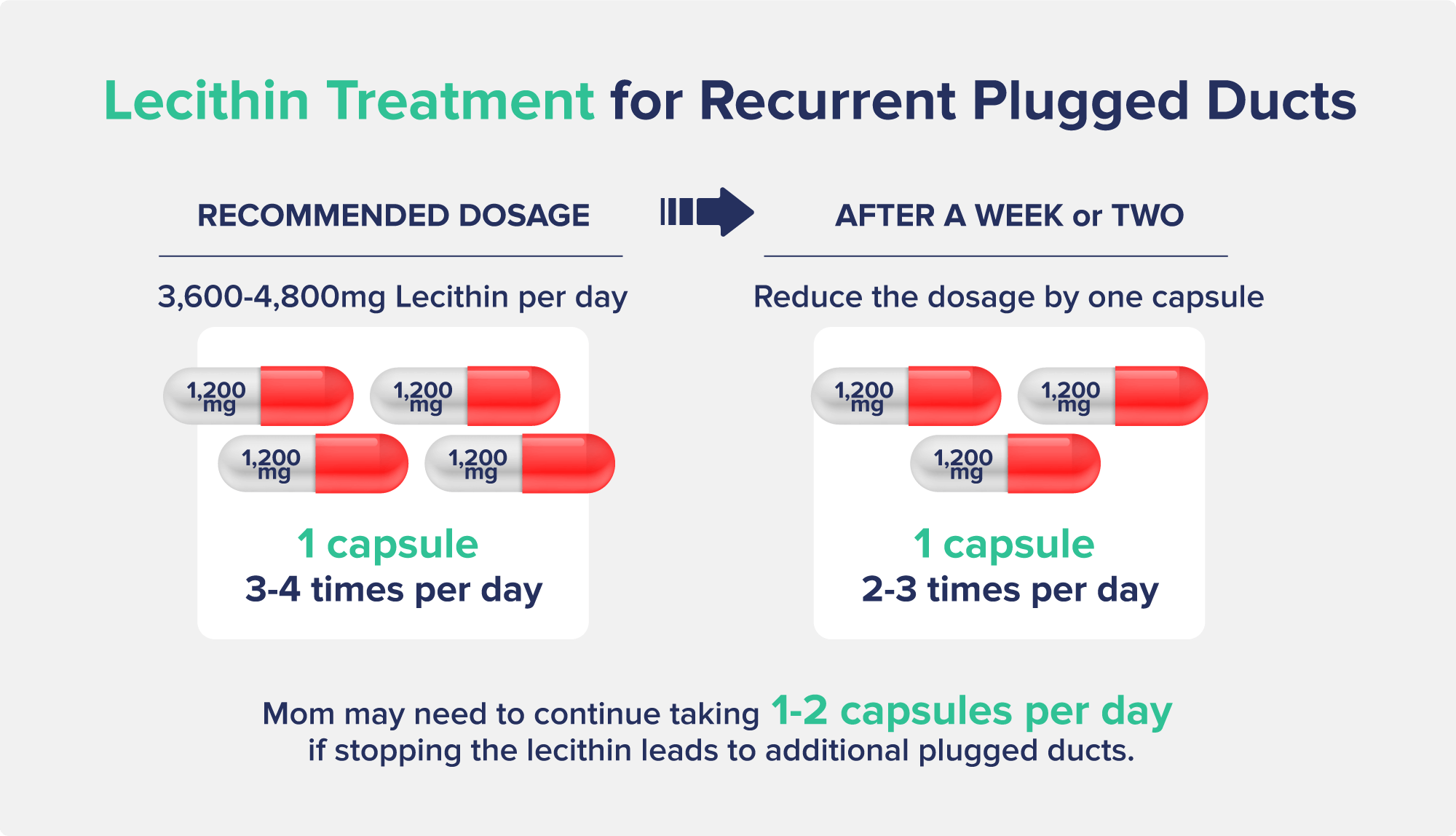Talk to a Registered Dietitian and use INSIDER20 for 20% off!
Talk to a real Dietitian for only $99: Schedule Now
This post contains links through which we may earn a small commission should you make a purchase from a brand. This in no way affects our ability to objectively critique the products and brands we review.
Evidence Based Research To fulfill our commitment to bringing our audience accurate and insightful content, our expert writers and medical reviewers rely on carefully curated research.
Read Our Editorial Policy
Soy lecithin is one of the most widely used food additives today. This natural emulsifier and stabilizer derived from raw soybeans can be found in everything from chocolate to baked goods to natural supplements.
But what the heck is soy lecithin exactly? This single ingredient has people talking about and questioning it, stirring up both excitement and curiosity.
But are we celebrating it or shunning it?
Are we adding it for health reasons or staying far, far away to protect our health?
Hang tight as we explore soy lecithin, its health benefits and side effects, foods containing it, and how it’s used.
Soy lecithin, aka soybean lecithin, is an emulsifier extracted from soybeans (don’t worry, they don’t feel a thing) using a chemical solvent like hexane in the extraction process. What’s an emulsifier, you say?
An emulsifier helps two unmixable liquids to play nice and mix. Think of oil and water holding hands, skipping into the sunset rather than fighting in Nerf wars. Soy wasn’t always the unsung hero, though. Egg yolks used to be the all-hail emulsifier, but in 1846, a French chemist named Theodore Gobley strode in, performed some science wizardry, and uncovered the magic of soy lecithin. Dumbledore would be proud.
While further research is still required to fully understand the depths of soy lecithin benefits, there are plenty of key potential upsides of adding soy lecithin to your routine.

One of soy lecithin’s biggest flexes is how it manages high cholesterol levels.
LDL cholesterol is the “bad” cholesterol, and having high levels of it increases your risk for heart disease and stroke. Soy lecithin swoops in and helps to raise healthy HDL levels (we’re rooting for the good guys to win) and take down the bad guys. One small study found that 500mg of soy lecithin daily for two months reduced LDL cholesterol levels.

Luckily, because of soy lecithin’s ability to break down both fat-soluble and water-soluble molecules (remember that oil and water are teammates now), it’s able to give LDL the VIP escort out of your body, protecting your arteries from plaque buildup.
Thanks to the phospholipids—fat plus phosphate—found in soy lecithin, our immune system may get powered up by lecithin’s ability to process nutrients and remove waste at a cellular level.
Microscopic housekeeping at your service!
This type of clean-up helps cells function optimally, including immune cells.
A study out of Brazil found that daily lecithin shots in rats increased the natural killer cells called lymphocytes, which are vital to our immune system, by 92%. These cells help our immune system fight cancer, foreign viruses, and bacteria.
If you’ve been hitting the Pepto hard recently, I’ve got some info for you that could help you put down the bottle.
Soy lecithin acts as an emulsifier, blending and breaking down fats so your body can absorb nutrients properly. It also helps to keep things moving along in your digestive tract, putting you on a more regular schedule.
Up to 907,000 people in the United States suffer from ulcerative colitis—a form of inflammatory bowel disease (IBD)—and lecithin could provide some digestive relief by increasing phosphatidylcholine (PC) levels. You can read more about it here.
Soy lecithin has a natural compound called choline. Choline is a crucial nutrient that plays a significant role in memory and cognitive function.
When you consume soy lecithin, your body uses choline to produce acetylcholine, a neurotransmitter essential for memory formation and retention.
In an article by University of North Carolina, researchers state, “When rat pups receive choline supplements (in utero or during the second week of life), their brain function is changed, resulting in lifelong memory enhancement.”
The article continues to state that “These changes are so important that investigators can pick out the groups of animals whose mothers had extra choline even when these animals are elderly.”
People with Alzheimer’s disease have been found to have a relative lack of the enzyme responsible for converting choline into acetylcholine within the brain.
Because soy lecithin is so rich in choline, it helps boost the production of acetylcholine and possibly reduce some symptoms of Alzheimer’s disease and dementia.
Further research is needed in this area, but the results so far are promising.
If you’ve ever witnessed a new mom who has experienced clogged milk ducts, she will be the first to tell you that she would do just about anything (aside from handing over her precious cherub) to gain relief and avoid this painful situation.
Luckily, soy lecithin is also helpful in the treatment of clogged milk ducts. Kelly Bonyata, who is a certified lactation consultant, suggests taking lecithin at doses of 3600-4800 mg/day. If you find sweet, sweet anti-blockage relief in the first two weeks, you can decrease the dose.

How does it work? I’m happy you asked. Soy lecithin helps reduce the thickness of breast milk, making it easier to flow freely, resulting in fewer clogged ducts. Hallelujah!
Later down the line, soy lecithin can also help relieve menopause symptoms.
You might have heard the rumor on the street about soy lecithin being high in estrogen and/or raising estrogen levels. Fun Fact: Soy lecithin itself is not high in estrogen.
Soy lecithin contains high levels of phytoestrogens, which are plant compounds that can weakly mimic the effects of estrogen in the body. Soy lecithin is derived from soy oil, which contains a meager amount of estrogen compounds. A tiny amount of phytoestrogen intake through soy lecithin will not create a hormonal imbalance if that is one of your worries.
Soy lecithin, rich in essential fatty acids, isn’t just an additive. It can be found naturally in everyday, natural foods, including whole eggs for breakfst, milk and other dairy products (this includes ice cream, right?), edamame, chicken liver, and more.
The reason soy lecithin is added to food products is to act as an emulsifier (back to the oil and water theory) and improve the texture of many foods. Think salad dressing and baked goods.
Because soy lecithin prevents fat and water separation, it prevents spoilage in the food products and extends shelf life.
The question of whether soy lecithin is GMO soy often hinges on the source of lecithin.
Soy lecithin is typically lecithin derived from soybeans, and the majority of soybeans grown today are genetically modified. These GMO soybeans are what make up the majority of soybeans today, so it’s important to choose organic soy lecithin when you can.
“Healthy” can be a relative term, so let’s break it down.
The lecithin that is derived from soybean oil has many benefits that we discussed earlier. The real red flag is if you experience soybean allergens, then it’s best to avoid soy lecithin.
There are plenty of health benefits to be obtained by consuming soy lecithin, so speak with your healthcare provider to see if this soy route is the way to go!
3 Comments
I want to thank you for giving me information regarding soy lecithin. I notice it is in most processed foods. I was unaware that it is a GMO food additive. Why can’t companies put on their labels the specific GMO ingredients?
Where will I find organic, non GMO, liquid lecithin? I have a child with a severe neuromuscular disease. I found a study out of Germany that showed improvement in the myelin sheath using lecithin. I have been unable to find liquid, organic lecithin. I hope you can help me. Thank you very, very much.
Robbin- i hope you see this. NOW brand sells a non Gmo soy lecithin. You can get it off Amazon.